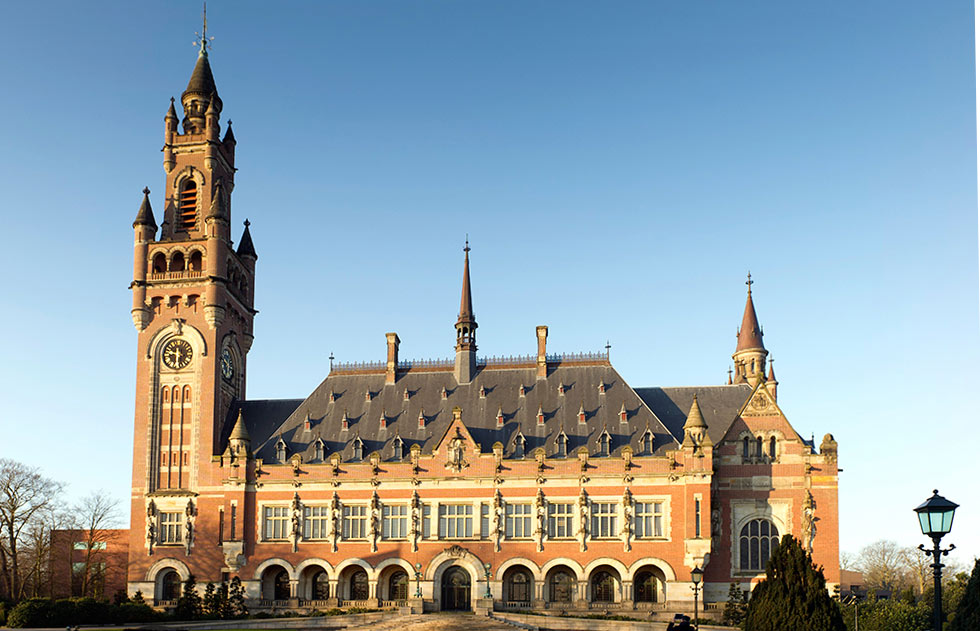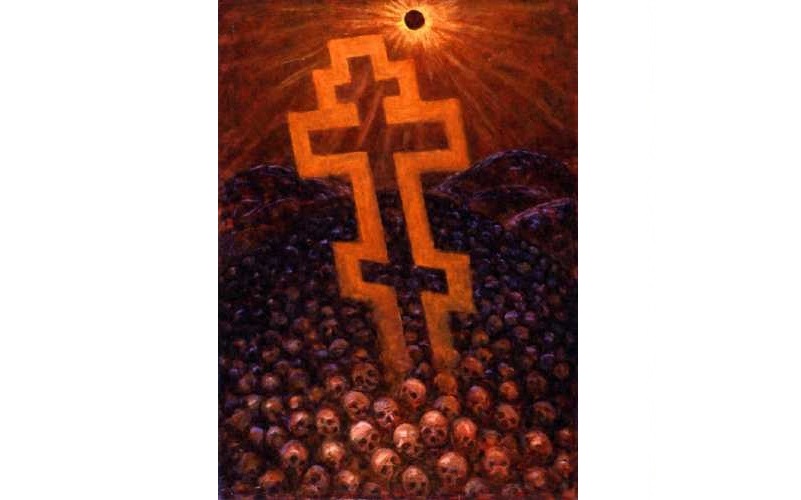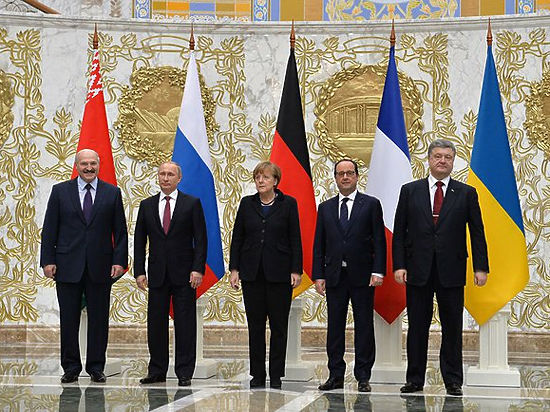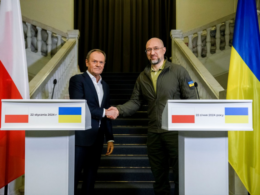Ukraine gained a complete victory in its case against Russia at the International Court of Justice. The ICJ ordered to immediately stop the invasion. The order is binding under international law. Russia must comply immediately. Ignoring the order will isolate Russia even further
— Володимир Зеленський (@ZelenskyyUa) March 16, 2022
Background
On 26 February, Ukraine filed in the Court an application against Russia concerning “a dispute . . . relating to the interpretation, application and fulfilment of the 1948 Convention on the Prevention and Punishment of the Crime of Genocide.”
At the end of its application, Ukraine asked the Court to:
- Adjudge that Ukraine committed no acts of genocide in the Luhansk and Donetsk oblasts, contrary to Russia’s claims
- Adjudge that Russia cannot justify its aggression in Ukraine on the basis of its false claims of genocide in the Luhansk and Donetsk oblasts
- Order Russia to pay reparation for all damage caused by its actions on the grounds of false genocide claims
Along with these claims, Kyiv asked the Court to order that Russia must immediately stop its military activities in Ukraine, which have as their declared goal the deterrence and punishment of an asserted genocide in the Luhansk and Donetsk oblasts.
What did the Court rule?
On 16 March, Ukraine received all it asked for, by 13 votes to two.
The Court stated that Russia may not hide behind genocide allegations and launch an armed attack against Ukraine. The Court has no evidence that Ukraine has ever committed genocide on its territory.
Based on this, the International Court of Justice obliged Russia to stop its military operations immediately and stop any furtherance of the military operations of the Russian and Russia-backed forces.
Will Russia comply with the order?
No. No international law-enforcement body to make Russia obey the decision of an international court exists.
But the Court’s decision is vital since it provides solid ground for international military, economic, and political support for Ukraine.
“There is a legal dimension. It is clear. There are no doubts about who is right and who is obliged to do what. The International Court performed its function here.
This dimension shapes the policy and actions of the majority of states and international organizations, their assessment of the situation, their support of Ukraine, their sanctions against the perpetrator.
There are political, military, and economic dimensions. Politicians and military men will decide on the scale and type of force to use against the aggressor. Legal grounds for that are enhanced, namely, by today’s order of the International Court of Justice,” said Mykola Gnatovsky, Vice-President у Ukrainian Association of International Law.
Ukraine’s Foreign Minister Dmytro Kuleba is assured Russia’s international legal responsibility is inevitable and eventually, Moscow will pay reparations. He calls today’s order an “act of justice with regard to the Ukrainian people:”
- The highest judicial body established that Russia invaded Ukraine and must stop immediately
- Russia has no lawful grounds for its military operation in Ukraine, since Kyiv committed no acts of genocide, as claimed by Moscow
- Some 13 judges (except those from Russia and China) supported the order
- The order is binding and will shape the future policy of foreign states and organizations.
Related:
- Ukraine vs Russia at the ICJ: It is not Ukraine commiting genocide, but Russia committing war crimes in Ukraine
- ICJ examines Ukraine’s case regarding Russia’s false pretext of “genocide” to invade Ukraine








